Thomas M. Loughin
Targeted tuning of random forests for quantile estimation and prediction intervals
Jul 02, 2025Abstract:We present a novel tuning procedure for random forests (RFs) that improves the accuracy of estimated quantiles and produces valid, relatively narrow prediction intervals. While RFs are typically used to estimate mean responses (conditional on covariates), they can also be used to estimate quantiles by estimating the full distribution of the response. However, standard approaches for building RFs often result in excessively biased quantile estimates. To reduce this bias, our proposed tuning procedure minimizes "quantile coverage loss" (QCL), which we define as the estimated bias of the marginal quantile coverage probability estimate based on the out-of-bag sample. We adapt QCL tuning to handle censored data and demonstrate its use with random survival forests. We show that QCL tuning results in quantile estimates with more accurate coverage probabilities than those achieved using default parameter values or traditional tuning (using MSPE for uncensored data and C-index for censored data), while also reducing the estimated MSE of these coverage probabilities. We discuss how the superior performance of QCL tuning is linked to its alignment with the estimation goal. Finally, we explore the validity and width of prediction intervals created using this method.
Alpha-Trimming: Locally Adaptive Tree Pruning for Random Forests
Aug 13, 2024
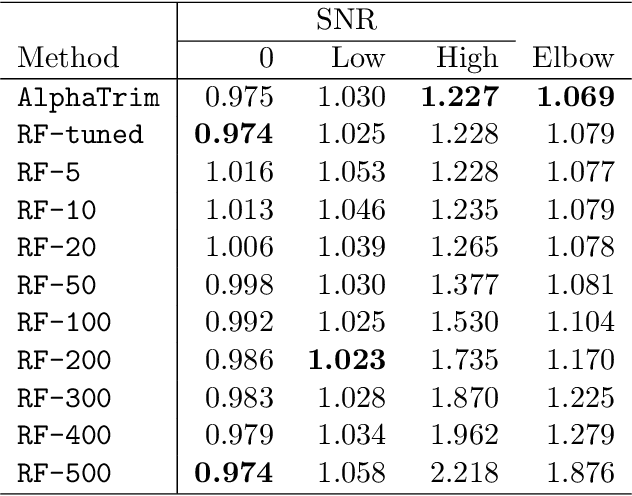

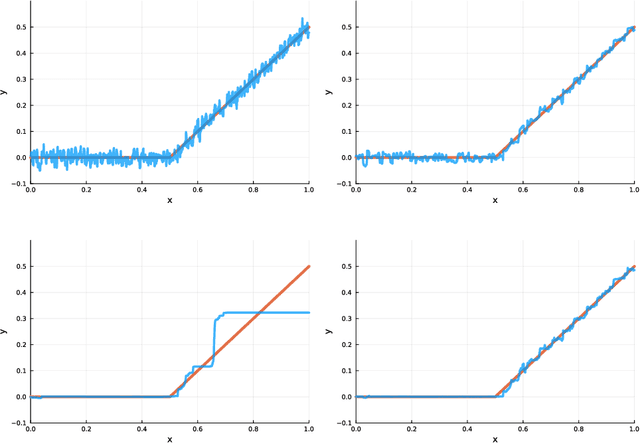
Abstract:We demonstrate that adaptively controlling the size of individual regression trees in a random forest can improve predictive performance, contrary to the conventional wisdom that trees should be fully grown. A fast pruning algorithm, alpha-trimming, is proposed as an effective approach to pruning trees within a random forest, where more aggressive pruning is performed in regions with a low signal-to-noise ratio. The amount of overall pruning is controlled by adjusting the weight on an information criterion penalty as a tuning parameter, with the standard random forest being a special case of our alpha-trimmed random forest. A remarkable feature of alpha-trimming is that its tuning parameter can be adjusted without refitting the trees in the random forest once the trees have been fully grown once. In a benchmark suite of 46 example data sets, mean squared prediction error is often substantially lowered by using our pruning algorithm and is never substantially increased compared to a random forest with fully-grown trees at default parameter settings.
Display advertising: Estimating conversion probability efficiently
Oct 24, 2017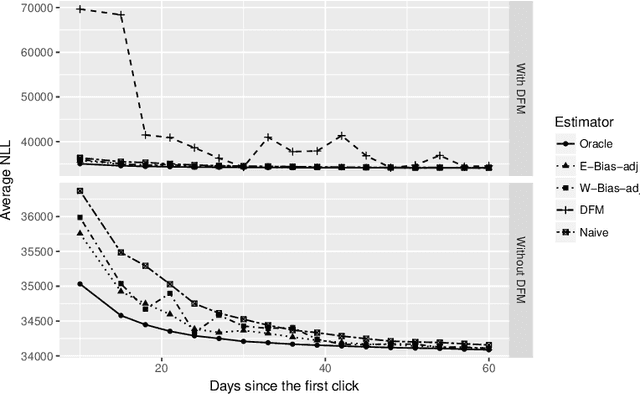
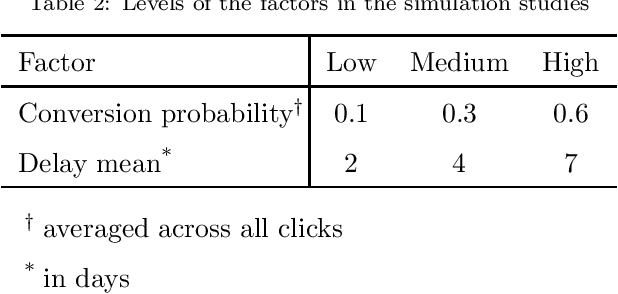
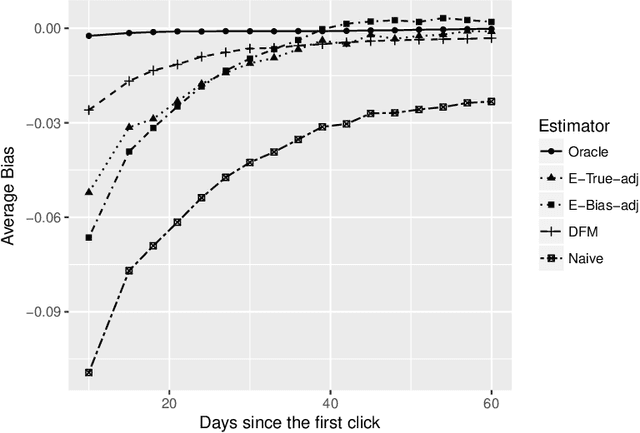
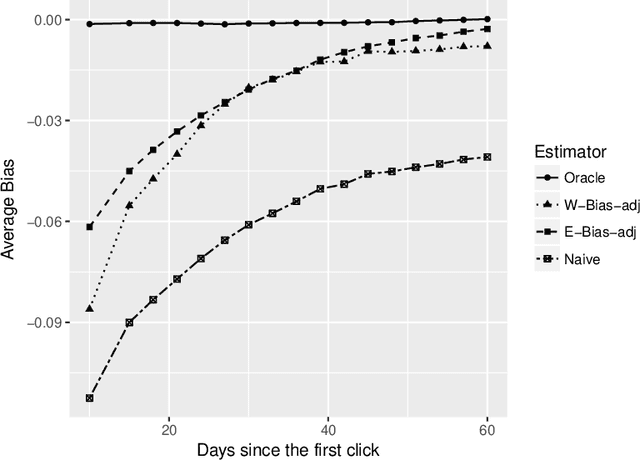
Abstract:The goal of online display advertising is to entice users to "convert" (i.e., take a pre-defined action such as making a purchase) after clicking on the ad. An important measure of the value of an ad is the probability of conversion. The focus of this paper is the development of a computationally efficient, accurate, and precise estimator of conversion probability. The challenges associated with this estimation problem are the delays in observing conversions and the size of the data set (both number of observations and number of predictors). Two models have previously been considered as a basis for estimation: A logistic regression model and a joint model for observed conversion statuses and delay times. Fitting the former is simple, but ignoring the delays in conversion leads to an under-estimate of conversion probability. On the other hand, the latter is less biased but computationally expensive to fit. Our proposed estimator is a compromise between these two estimators. We apply our results to a data set from Criteo, a commerce marketing company that personalizes online display advertisements for users.
 Add to Chrome
Add to Chrome Add to Firefox
Add to Firefox Add to Edge
Add to Edge